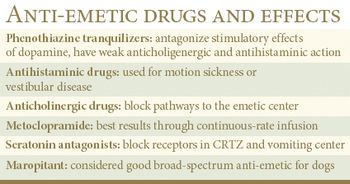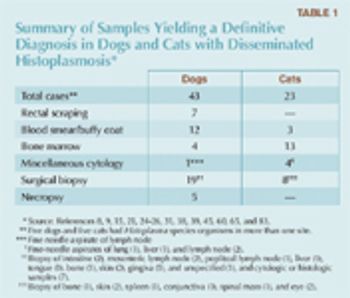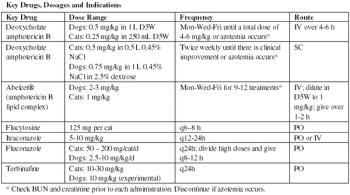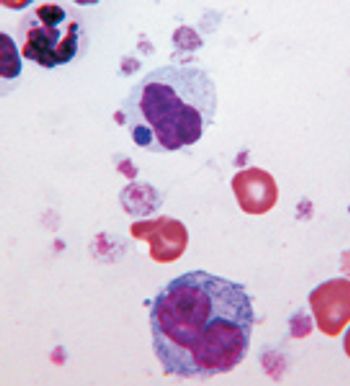
Please provide a review of anti-emetic and prokinetic drugs - I am confused.

Please provide a review of anti-emetic and prokinetic drugs - I am confused.

Indianapolis - Three horses on a south-central Indiana farm recently tested positive for equine infectious leukemia (EIA), prompting the State Board of Animal Health to issue an alert.

Q: Please provide a review on canine babesiosis and canine leptospirosis.

Infection with the pathogenic fungus Histoplasma capsulatum can result in systemic disease in several species of animals, including dogs and cats.

Influenza A viruses are divided into subtypes according to the serological reactivity of the surface glycoproteins hemagglutinin (HA) and neuraminidase (NA).

Leptospirosis: Spirochete with more than 200 "serovars."

Vector-borne infectious diseases have been identified more frequently in humans and domestic animals in recent years, and include some of the most important emerging and re-emerging infectious diseases.

Empiric antibiotic therapy is the appropriate use of antibiotics without knowing the agent or before its susceptibility is known.

Cough is one of the body's defense mechanisms to prevent the entry of noxious materials into the respiratory system, and to clear potentially harmful debris from the lungs and respiratory tract.

Bronchial diseases are common causes of loud cough and dyspnea in dogs and cats.

Feline herpesvirus-1 (FHV1) and feline calicivirus (FCV) are the two major viral causes of upper respiratory tract disease (URD) in cats.

Distemper is very contagious disease of dogs that may involve the gastrointestinal, respiratory and/or neurologic systems.

Despite improvements in our understanding of the pathogenesis of FIP, FIP remains a leading cause of death in young cats, especially purebred catteries, shelters.

Causes of anemia in cats include decreased red blood cell (RBC) production, blood loss, and increased RBC destruction.

Parenchymal pulmonary diseases usually restrict expansion of the lungs leading to dyspnea, and may be occasionally with soft cough.

Immunosuppression in pets may be the result of an acquired immune deficiency, such as that due to neoplastic disease, immune-mediated disease, endocrine disease, or drug therapy; or more rarely, a congenital immune deficiency.

In recent years, the use of antifungal drugs in human medicine has increased, especially with the advent of the AIDS epidemic.

PCR-based diagnosis is ideally suited to detection of organisms that are not easily found on cytologic preparations, are slow-growing or difficult to cultivate, when a rapid diagnosis is required, when alternative methods are expensive or hazardous to laboratory staff, or when inhibitory substances such as antimicrobials may be present.

Fever of unknown origin (FUO) is defined in human medicine as a temperature elevation for 3 weeks or longer, the cause of which is not diagnosed after 1 week of intensive in-hospital investigation.

Leptospirosis is caused by infection with serovars of Leptospira interrogans sensu lato.

Canine anaplasmosis is caused by one of two gram-negative, obligate, intracellular bacterial agents, Anaplasma phagocytophilum or Anaplasma platys. Both types are likely spread by ticks and can occur worldwide.

Denver, Co. - A stalled state bill moved ahead after a provision was removed allowing pet owners to seek non-economic damages against veterinarians.

Richmond, Va. - Reported cases of animal rabies in the state have spiked to their highest number since 1982, according to Virginia health officials.

Dr. Stephen C. Barr offers testing and interpretation tips that help in identifying leptospirosis in dogs.

Richmond, Va. - 3/11/08 - Reported cases of animal rabies in the state have spiked to their highest number since 1982, according to Virginia health officials.